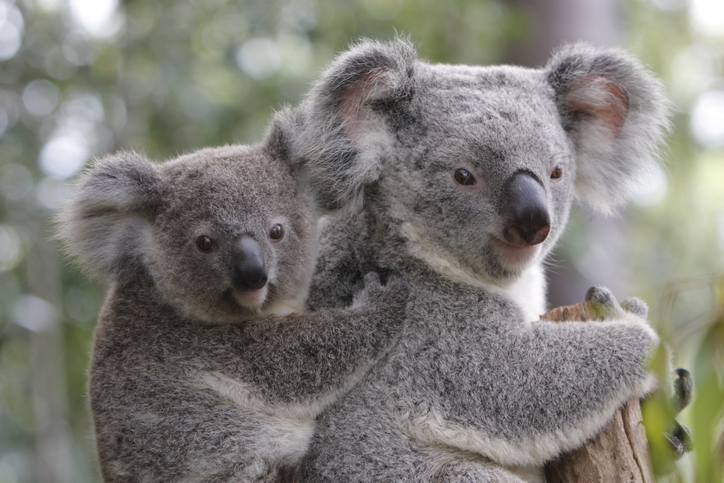Scientists have discovered new genetic clues in the fight against serious diseases that are killing koalas in different parts of Australia.
The koalas in Northern Australia are in severe decline not just due to loss of habitat, but because of leukaemia and lymphoma as well as a high incidence of chlamydia which causes infertility. Previous research found that these diseases were likely to be linked to a retrovirus called KoRV that integrates into the koala genome. The koalas in South Australia have a much lower incidence of disease so it was thought that they may not have KoRV in their genome.
Now a team of researchers from the University of Nottingham's School of Veterinary Medicine and Science has analysed genomic data supplied by colleagues at the Universities of Queensland and Adelaide and Longleat safari park in the UK. They have found that the southern koalas do in fact have the KoRV virus but the version they have is missing a big piece of its genetic material.

Koalas in Southern Australia are genetically restricted thanks to historical hunting pressure which may be linked to this viral anomaly. The discovery, published online here, could help the long term survival of the species.
There are an estimated 4 million koalas in Australia but in 2016 the species was upgraded from 'least concern' to 'vulnerable' on the IUCN Red List of Threatened Species. Roughly 3% of the wild population in Queensland have leukaemia or lymphoma, with many more having chlamydia. Up to 60% of koalas living in captivity die of leukaemia or lymphoma.

The scientists' discovery could be the key to protecting the koala population as a whole by informing future cross-breeding programmes in Australia. The South Australian animals have a really different profile of KoRV reflecting their apparent protection from viral disease.
In addition analysis of the genetic differences between the northern and southern animals indicates that changes in another gene which can transport oxalate in the kidney and small intestine could be involved in the kidney disease commonly seen in the Southern Australian animals.
Dr Rachael Tarlinton from the School of Veterinary Medicine and Science said: "Koalas only live in Australia and only eat eucalyptus leaves so the maintenance of natural habitat and disease resistance are vital to the future of this most popular of species. The koala population in the north, in Queensland, has been decimated in the past few decades partly because these animals seem so susceptible to cancer and chlamydia because of the KoRV embedded in their genome. Southern koalas, which are larger and fluffier, are more in-bred and our analysis of the Australian data is very exciting in that we think their version of the virus is actually reducing the prevalence of disease. If we can prove this effect in the next step of our research, we are halfway to saving their cousins in the north."

We think the southern koalas' version of the virus is actually reducing the prevalence of disease in their population.

Leading the work in Australia, Dr Greg Simmons, at the University of Queensland, said: "We collected samples from 10 koalas from Queensland and 19 koalas from South Australia and used new generation gene sequencing methods to study their genomes. We think the results this work has produced are very exciting and potentially a game changer for the future of koalas in Australia."

University of Adelaide koala researcher Dr Natasha Speight has collaborated on the project and is excited about both the KoRV findings and those for the kidney disease oxalate nephrosis. "So little has been understood about the health of southern koalas until recently and now we can move forward with our research to further understand these diseases".
The project was funded by the Queensland Department of the Environment and Heritage Koala Research Grant Programme and a University of Nottingham Faculty of Medicine and Health Sciences Sandpit award. The full research paper is available online here.






